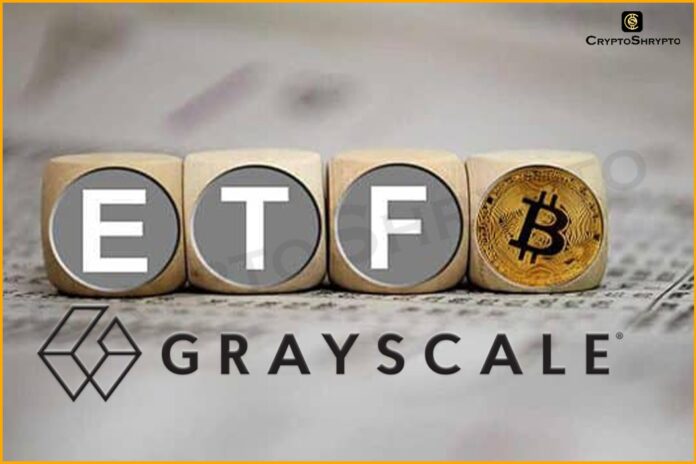Top executives from Grayscale, the crypto asset manager, recently held discussions with the Securities and Exchange Commission (SEC) regarding the potential conversion of its flagship Bitcoin trust into a spot Bitcoin exchange-traded fund (ETF). A November 20 SEC memo disclosed the meeting, which included Grayscale CEO Michael Sonnenshein, legal chief Craig Salm, ETF head Dave LaValle, and other key executives, along with representatives from the Davis Polk law firm.
The discussions focused on the proposed rule change by NYSE Arca, Inc. to list and trade shares of the Grayscale Bitcoin Trust (GBTC) under NYSE Arca Rule 8.201-E. Grayscale revealed that it had entered a Transfer Agency and Service Agreement with BNY Mellon, which will act as the agent for GBTC, facilitating share issuance and redemption, as well as maintaining shareholder accounts.
Bloomberg ETF analyst James Seyffart shared this information, emphasizing that the agreement with BNY Mellon was likely a necessary step and not an indication of an imminent conversion to an ETF. The SEC’s division of trading and markets, responsible for approving or denying proposed rule changes, plays a crucial role in the process.
In a Twitter post, ETF Store President Nate Geraci noted that the term “conversion” was being referred to as an “uplisting,” suggesting a positive outlook for Grayscale’s move towards an ETF. Geraci expressed that if Grayscale can uplist GBTC to NYSE Arca on the same day as other issuers launch spot Bitcoin ETFs and competes on fees, the firm has a real chance to dominate the ETF category.
Grayscale submitted a registration statement with the SEC in October, intending to list GBTC shares on NYSE Arca under the ticker symbol GBTC. The SEC’s mandate for a review of its decision regarding Grayscale’s ETF bid, combined with efforts by major asset managers like BlackRock and Fidelity seeking SEC approval for spot Bitcoin ETFs, indicates ongoing momentum in the cryptocurrency ETF space. Analyst Seyffart maintained a 90% likelihood of ETF approval on or before January 10, 2024, emphasizing the continued progress in this regulatory landscape.




